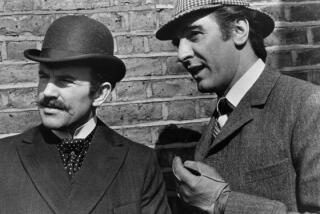King Tape Row Won’t Delay ‘X’ : Movies: Attorney for Spike Lee affirms the commitment to the release date, declaring that any late alterations to the film would be ‘prohibitive.’
- Share via
Forty-five seconds of world-famous videotape will not be allowed to interfere with the Nov. 20 release of the 3-hour-and-11-minute, $35-million “Malcolm X” film, Spike Lee’s attorney said Wednesday.
The attorney, Martin Garbus of New York, said that if the legal dispute over whether Lee is entitled to use footage of the March, 1991, beating of Rodney G. King is not resolved by Oct. 1, the material will be excised from the movie.
By that date, completed prints of the film must be ready to be shown to exhibitors deciding whether to book the movie, Garbus said by telephone, adding that it would be “prohibitive” to alter the film after that point.
“Warner Bros. will not release the film with a cloud over it,” Garbus said. “Our problem is that to clear the cloud, we’ll have to take the footage out. . . . We’re not going to allow it to jeopardize release of the film.”
A Warner Bros. spokeswoman confirmed that the studio needs at least six weeks to submit prints to exhibitors so they can bid on the film. Twenty-eight finished prints are needed by early October.
Lee failed on Tuesday to persuade U.S. District Judge Terry J. Hatter to rule quickly on a preliminary injunction motion filed by George Holliday, the plumber who taped the beating. Garbus said he would decide Wednesday whether to seek to overturn Hatter’s order.
In a suit filed Sept. 10, Holliday accused Lee of copyright infringement and sought to enjoin Warner Bros. from releasing the movie, which stars Denzel Washington as the slain African-American leader. Hatter is not scheduled to rule on the injunction motion before Oct. 13.
Holliday claims Lee knowingly negotiated a licensing agreement with a party who had no authority to grant it. The filmmaker, in turn, has accused Holliday of extortion, saying he wants more than the $50,000 agreed on for use of the tape.
Warner Bros., which was also named as a defendant in Holliday’s lawsuit, joined Lee in asking the court to expedite a decision on the injunction, although the studio took no position on whether the licensing agreement is valid.
Privately, studio executives have said they would prefer to see the inflammatory King footage left out of the movie. In the film’s opening montage, the beating follows a sequence showing an American flag burning and exploding into an “X.”
In court documents, Garbus argued that eliminating the King footage “would destroy the artistic integrity of Lee’s motion picture.” The scene is “critical to powerfully demonstrate that Malcolm X’s struggle for human rights for African-Americans is far from being won,” the papers state.
Garbus, a renowned First Amendment lawyer who has represented such clients as Lenny Bruce and Henry Miller, also argued in court papers that the significance of the tape as a record of “one of the most shocking and dramatic moments in the history of race relations in America” precludes Holliday on free speech grounds from copyrighting the footage. “There is simply no other way for Spike Lee to use the fact--or idea--of the Rodney King beating without using the videotape,” Garbus said in court documents.
The lawyer said he believes the footage is now in the public domain, adding that although Lee paid for its use, he was not obligated to do so.
Holliday’s lawyer, Ronald W. Grigg, contended that the First Amendment is not applicable to a copyright dispute between private parties and apparently did not enter into earlier discussions. In the lawsuit, Holliday claimed that negotiations over the tape foundered last May when Lee demanded exclusive rights to its use.
More to Read
Only good movies
Get the Indie Focus newsletter, Mark Olsen's weekly guide to the world of cinema.
You may occasionally receive promotional content from the Los Angeles Times.








